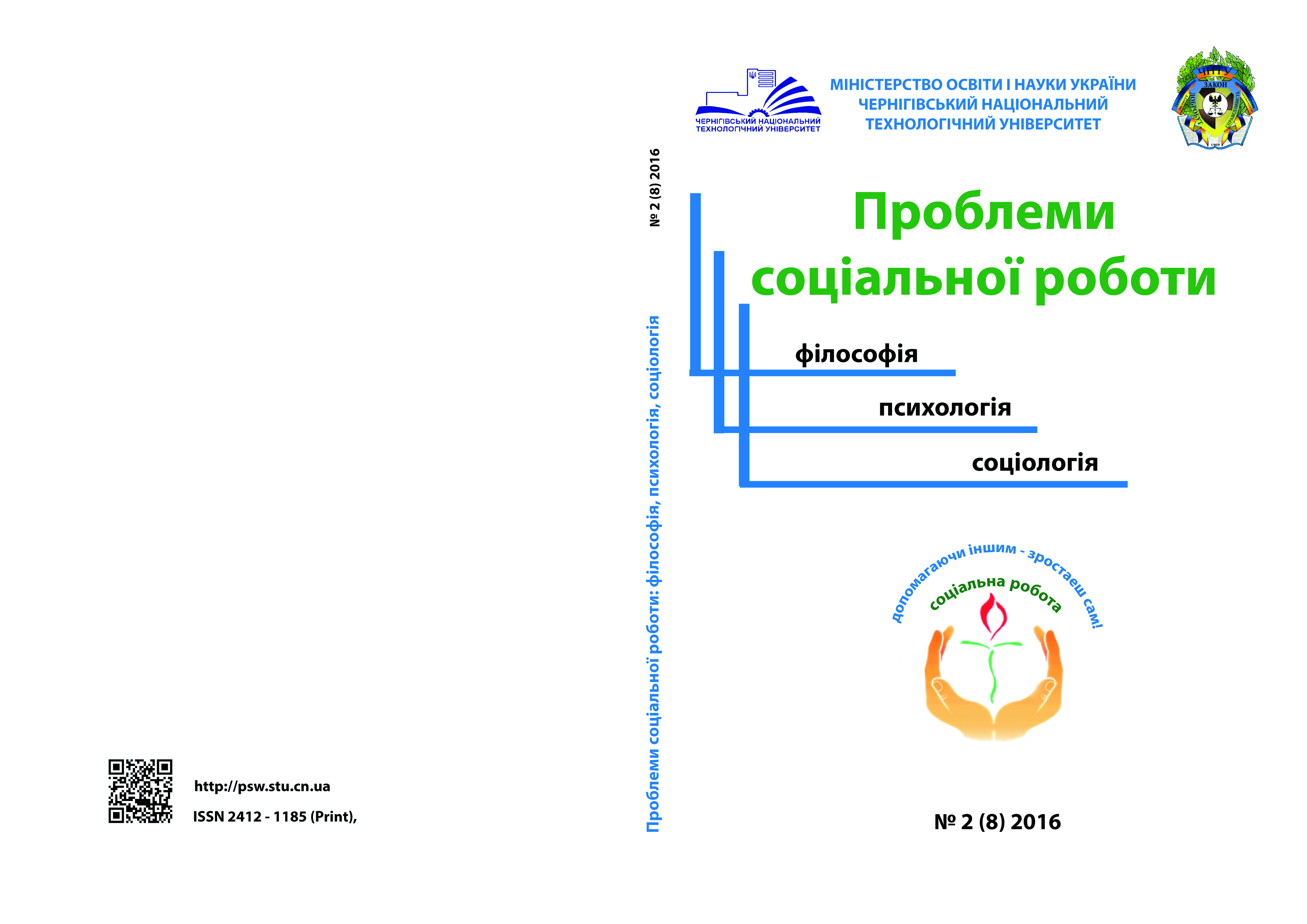ВІД КУЛЬТУРИ СМИСЛУ ДО СМИСЛУ КУЛЬТУРИ
Ключові слова:
культура, смисл, ієрархія цінностей, світогляд, філософська рефлексія, індивідуальна і суспільна свідомістьАнотація
Смислова сфера є своєрідним сіамським близнюком культури: з одного боку, її не можна уявити поза культурою, а з іншого – вона сама утворює змістовий фундамент, першу і останню інтерпретаційну межу будь якого культурного феномену. І хоча, така невід’ємна, генетична залежність культури і смислу не піддається сумніву, залишається відкритим питання про смислові параметри культури і про культурну своєрідність смислу.Посилання
Гусев, С. С. Проблема понимания в философии / С. С. Гусев, Г. Л. Тульчинский. – М. : Политиздат, 1985. – 192 с.
Егоров, В. С. Философия открытого мира / В. С. Егоров. – М. : Московский психологосоциальный институт; Воронеж : Издательство НПО «МОДЭК», 2002. – 320 с.
Лепский, В. Е. Субъектно-ориентированный подход к инновационному развитию / В. Е. Лепский. – М. : Изд-во «Когито-Центр», 2009. – 208 с.
Лефевр, В. А. О самоорганизующихся и само рефлексивных системах / В. А. Лефевр // Проблемы исследования систем и структур. Материалы к конференции. – М. : Академия наук СССР. – 1965. – С. 61–68.
Новиков, А. И. Смысл : Семь дихотомических признаков [Электронный ресурс] / А. И. Новиков. – Режим доступа: http://teneta.rinet.ru/rus/ne/novikov_smysl-sem.html.
Франкл, В. Человек в поисках смысла : Сборник / пер. с англ. и нем. Д. А. Леонтьева, М. П. Папуша, Е. В. Эйдмана. – М. : Прогресс, 1990. – 368 с.
Хакен, Г. Информация и самоорганизация. Макроскопический подход к сложным системам / Г. Хакен. – М. : Мир, 1991. – 240 с.
Щедровицкий, Г. П. Рефлексия и ее проблемы / Г. П. Щедровицкий // Рефлексивные процессы и управление. – 2001. – №1. – Том 1. – С. 49. http://www.reflexion.ru/Library/Journal-_2001_1_rus. pdf.
Юлов, В. Ф. Научное мышление: монография [Электронный ресурс] / В. Ф. Юлов. – Киров : Центр гуманитарных технологий,2007. - Режим доступа: http://gtmarket.ru/laboratory/basis/6457.
##submission.downloads##
Номер
Розділ
Ліцензія
Авторське право (c) 2017 Чернігівський національний технологічний університет,2015

Ця робота ліцензується відповідно до Creative Commons Attribution-NonCommercial 4.0 International License.
1. Політика, яка рекомендується журналам, що пропонують відкритий доступ Автори, які публікуються у цьому журналі, погоджуються з наступними умовами:- Автори залишають за собою право на авторство своєї роботи та передають журналу право першої публікації цієї роботи на умовах ліцензії Creative Commons Attribution License, котра дозволяє іншим особам вільно розповсюджувати опубліковану роботу з обов'язковим посиланням на авторів оригінальної роботи та першу публікацію роботи у цьому журналі.
- Автори мають право укладати самостійні додаткові угоди щодо неексклюзивного розповсюдження роботи у тому вигляді, в якому вона була опублікована цим журналом (наприклад, розміщувати роботу в електронному сховищі установи або публікувати у складі монографії), за умови збереження посилання на першу публікацію роботи у цьому журналі.
- Політика журналу дозволяє і заохочує розміщення авторами в мережі Інтернет (наприклад, у сховищах установ або на особистих веб-сайтах) рукопису роботи, як до подання цього рукопису до редакції, так і під час його редакційного опрацювання, оскільки це сприяє виникненню продуктивної наукової дискусії та позитивно позначається на оперативності та динаміці цитування опублікованої роботи (див. The Effect of Open Access).


